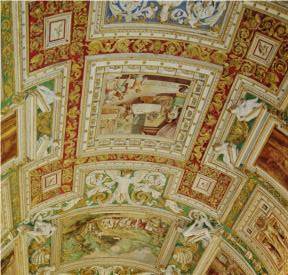 “Why would twenty-first century Christians—who can read the Bible for themselves and attend Bible-believing churches—need to study Church History?”
“Why would twenty-first century Christians—who can read the Bible for themselves and attend Bible-believing churches—need to study Church History?”
5. Learning church history will counter the claims of critics.
Prior to the eruption of World War II, between 1925 and 1935 a frantic France fortified the long border it shared with Germany. The “Maginot Line”—named after the man who conceived the idea—included a network of bunkers, forts, tunnels, and fortifications for thousands of soldiers. For all practical purposes, the Maginot Line was impenetrable. The French army had prepared to fend off a frontal assault by the Germans —and history proved that the defenses were successful.
But the Germans didn’t bother to penetrate the Maginot Line.
They went around it!
Because of a treaty with Belgium (which stood between France and Germany), the French had not anticipated that the Nazis would simply roll through Belgium to circumvent the Maginot Line. But they did. The Germans found the weakest point in France’s defense and exploited it. They found, as it were, an unguarded back door.
In its brief history as a distinct Protestant movement, evangelicalism spent over a century building up its fortifications first against the destructive skepticism of modernist liberalism and more recently against postmodern cynicism. To hold the line, they set guards on the borders of biblical inerrancy and secured the doctrines that directly related to the Protestant message of salvation by grace through faith. At the same time they sent forth an army of evangelists, missionaries, apologists, and teachers to take new ground. But in the process of fortifying the obvious points of direct attacks, they neglected their heritage in the ancient and Reformation eras.
The result? In the last few decades clever critics and sneaky scholars have switched their assaults from attacks on the Bible, theology, and personal faith to an all-out assault on the Achilles’ heel of evangelicalism: the history of Christianity. Their attacks have left evangelicals scrambling to defend a history they had forgotten and saints they had forsaken.
A line from the first thirty seconds of the movie Braveheart expresses summarizes the critics’ view of church history: “History is written by those who have hanged heroes.” These scholars say the early church fathers changed the real human Jesus from a controversial rabbi and idealistic martyr into a risen Savior and God who bears no resemblance to the historical Jesus. They claim the early catholic Christians browbeat those who opposed their agenda, selected Christian writings that agreed with their positions, and then rewrote history to make it look like theirs had been the original view of Jesus and the apostles. All other views were then unfairly declared to be “heretical.”
It all boils down to this: Did the early church fathers after the apostles preserve and defend the faith or did they pervert and destroy it? Did the Protestant Reformers restore Christianity to a condition similar to the early church, or did they create a new religion from scratch? Are the early fathers and later Reformers “heroes” or “villains”? Who are those people that we implicitly trust to have accepted the right Scriptures and rejected the wrong ones? How do we know they could discern the difference between correct teachings about Jesus and false doctrines? Most evangelicals have no idea how to respond to these questions in order to deflect the attacks and contend for the faith.
The time has come for evangelicals to refortify this vulnerable target, so when critics launch their inevitable attacks, we won’t lose the battle on our own soil. We need to strengthen our levee, so when the storms of controversy rise, we won’t be flooded with needless doubts. And we need to inspect our historical foundations, so we can adorn this two-thousand-year-old temple of the church with gold, silver, and precious stones instead of wood, hay, and straw (1 Cor. 3:12–13). Only by studying church history will we be adequately equipped to counter the claims of these critics.
